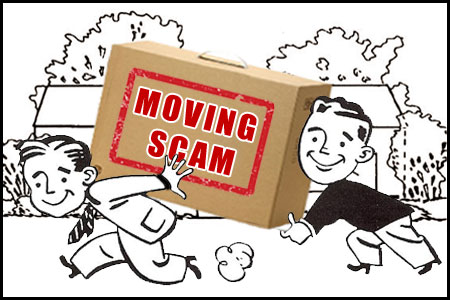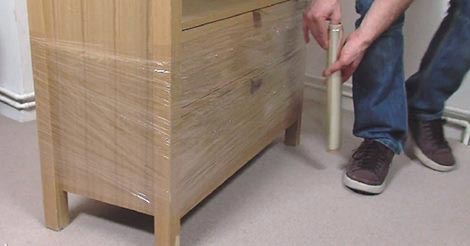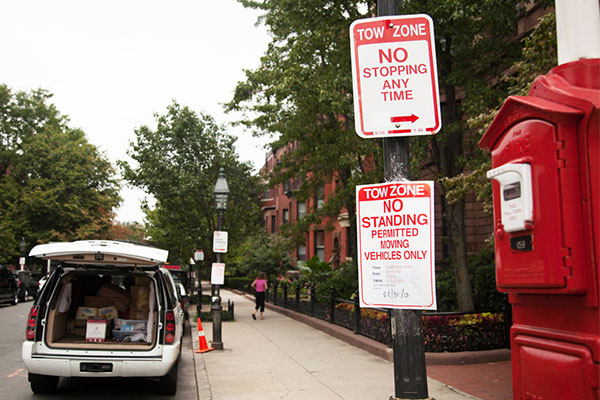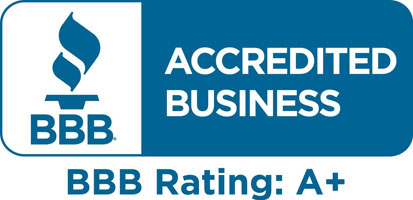Avoid Moving Scams
The process of moving house can be a complicated affair where your money, time and nerves will be tested to their limits – at least in the majority of relocation cases, that is. Proper organization is crucial to the success of your upcoming residential move, and as a rule – the fewer moving and packing mistakes you make, the higher the chances are of having a smooth move.
In an ideal world, the quality of the professional moving services you choose to use will be nothing short of outstanding – all the way from the initial contact with the mover to the problem-free delivery of your items to the new house or apartment. After all, you’re paying big money to have your household items taken proper care of: packed, carried to the moving vehicle, loaded, transported, taken inside the home, and unpacked/installed, if applicable.
Regrettably, we don’t live in an ideal world and it is possible that you could get in touch with a dishonest moving company, especially if you haven’t done your homework right. Needless to say, becoming a victim of moving fraud is one of the worst things, or maybe even the worst case moving scenario that could happen to you. Which is exactly why you must steer away from troubles and long lasting headaches by understanding how to protect yourself from moving fraud.
We offer you this fraud prevention checklist: proven smart ways to avoid moving scams, but first, you’d better learn how moving fraud works in general.
What is a moving scam?
A moving scam is a broad term for fraudulent activities by a moving company which uses unlawful tactics to get more money from their customers in a dishonest way. It’s all about the money, of course, and the better you understand the different types of moving scams, the more protected you will stay from possible moving company scams that would really hurt your moving budget.
Types of moving scams and how to prevent themFind below the 5 most common moving scams used by so-called rogue movers and most importantly – what to do to avoid being scammed when moving house:
(1) False moving reviews and fake credentials
While looking for a top rated mover for your move, remember that only because somebody says they are the best doesn’t necessarily mean that they are the best.
Dishonest moving companies know just how important the initial research is when people are looking for a good mover (part of the recommended homework), so they tend to make their own employees leave highly positive reviews about the company itself. The goal is, naturally, to deceive more customers that they are a top rated moving company when, in reality, they are anything but that.
What can you do in such cases?
- Ask friends, family members and neighbors if they can recommend a mover they have used in the past. Such word-of-mouth advice is the most reliable form of references you can get.
- Access several different online moving review websites you can trust and read what former customers had to say about the mover you’re considering as your partner. Take extremely positive reviews with a grain of salt.
- Is the moving company you’ve selected a proud member of the American Moving and Storage Association (AMSA) and the Better Business Bureau (BBB)?
(2) Low-ball estimates
Speaking of the most common moving frauds, unrealistically low price estimates can be a sign that something is not quite right. Fraudulent movers often use this tactical move to hook unsuspected customers with promises that are seldom delivered. Rogue moving companies tend to give estimates over the phone which end up being way off the mark, and more often than not – simply too good to be true. As you can already guess, the final price you will be asked to pay will have nothing to do with the initial low-ball estimate you received.
Keep in mind that sometimes deceptive low-ball estimates can be issued after an in-house survey as well. If a moving company estimator visits your home, performs a quick walk-through of the rooms and quotes you an uncharacteristically low price with nothing but a careless glance over the things you have for moving and without asking you any essential questions, then that suspicious behavior can be a sign that you need to find yourself another moving company altogether.
What should you do to prevent that from happening?
- Never say YES to a mover who refuses to perform an on-site inspection of the household goods in your home.
- Always request estimates from at least 3-4 different moving companies so that you have a good comparison base.
- Ask the mover why their estimate is so much lower than the ones of their competitors. If no satisfactory explanation is provided, then find yourself another relocation partner.
(3) Goods held hostage
Have you prepared the ransom money for your household goods yet?
Arguably, the worst case scenario when dealing with dishonest movers is to have your goods held hostage by a rouge mover until you are forced to pay ransom money to have your belongings back. Things could get even worse if some or most of your goods are expensive or valuable items – then, the unscrupulous movers could just disappear without a trace and you wouldn’t even see your prized possessions anymore.
Note that both those moving company frauds are illegal and there are specific steps you should take if you become a victim of such a moving scam /see below for details/.
- How to protect yourself from moving scams like that? Prevention is the best protection, of course. Do your homework, research your movers well and daylight robberies like the scenario described above should never happen.
- To fight serious moving fraud like having your goods held hostage or stolen, the first step is to notify the police. Call 911 if it’s an emergency.
- Then, contact the U.S. Department of Transportation on their hotline at 1-888-DOT-SAFT (1-888-368-7238) to lodge a complaint directly or use their website to file a Household Goods Consumer Complaint .
(4) Large deposits
Remember that reputable moving companies will not demand cash or large deposits in advance. In most cases, you pay the mover the agreed sum upon delivery of your items. So, be extremely cautious if a mover wants your money before they have safely delivered your items to your new home – that demand along may be a sign of fraudulent activity.
Having said that, during the height of the moving season, some respectable movers may demand a deposit in order to reserve the moving date for your move. Once you know you can trust the move, there’s not need to panic. Still, standard booking fees should not exceed 10%-15% of the final moving price and the company has no right to demand that you pay that deposit cash.
How to protect yourself when moving?
- Do not give any money to movers in advance.
- If you know you can trust the company and you are asked for a deposit to reserve the date you want, always use a credit card to pay the 10% deposit so that you can dispute the payment later, if necessary.
(5) Incomplete or blank documents
Be careful where you place your signature when your mover hands you papers to sign.
While getting ready to move house, sometimes things tend to get (a bit) chaotic, especially with the arrival of Moving day. Dishonest movers know this fact well and use it to their advantage. For example, who has time to read all the moving documentation when there are so many much more important things to do and think about?
A typical moving company scam is to hand incomplete or even blank documents to their customers and request their signature. Don’t ever agree to do that! The major problem here is that you will have absolutely no control over what additional conditions, mostly prices, are added to that piece of document. And, with your signature already at the bottom, it simply means that you have read and agreed to all of clauses when, in reality, you have no idea what’s happening.
Documentation fraud is a common moving scam that a rogue mover will not hesitate to use. What can you do to stay on the safe side?
- As said above, under no circumstances should you sign incomplete or blank documents no matter how trustworthy your mover looks.
- You should have everything in writing – your moving contract, your estimate with all the extra fees, your inventory sheet and any additional documents that accompany the move. Each document should be complete and properly signed and stamped.
- Request your moving contract in advance and read it carefully. Read the fine print as well. You should understand well all clauses before you decide to sign it. Ask for clarifications if you fail to understand certain conditions or have trouble figuring out how some prices were formed.
- Pay special attention to the extra services and their rates. Make sure you understand what exactly it is that you’re paying for.
- Review your detailed inventory sheet with care and make sure all your belongings are listed there. Be aware that you won’t be able to file a claim for a lost item if that item was not present in that inventory checklist in the first place.
Spot the red flags to recognize a rogue mover
The moving fraud prevention guide above should give you enough information to protect yourself from being scammed and protect your move from becoming a disaster. Still, the best possible protection is prevention so it’s important that you learn how to spot a fraudulent mover before they get a hold of your prized household goods.
How do you recognize a rogue mover so that you stay away from them?
It looks like something has gone wrong on Moving day. Did you do your homework right?
- When you contact the moving company, they don’t answer the phone by the company name but simply say standard non-personal phrases such as “Movers” or “Moving company”.
- The moving company fails to offer in-house survey of your household goods and when you request such an on-site inspection, they refuse to do it. Instead, they offer to give you an estimate online or over the phone without seeing the things you have for transportation. Not surprisingly, the estimate you receive from such a mover will most likely be exceptionally low in order to lure you in.
- The mover refuses to issue you a written estimate, either binding or non-binding, of the moving costs you are about to incur.
- When you try to access the mover’s website for more information, it turns out that they don’t even have one. If they do, no specific information (company name, physical address, no licensing information (U.S. DOT number), no insurance information, etc.) will be available there.
- You can’t find any information about the company’s local offices, warehouses, or their fleet of moving trucks.
- The mover demands a large deposit of money before they have done any work at all.
- The moving company provides with moving documents that seem incomplete or even blank. Never place your signature on blank documents!
- One of the most obvious scams by moving companies is to arrive on Moving day not with their own company-owned and clearly marked moving vehicles but with a rental truck.
- On moving day, the company asks you to sign a new moving estimate because something has happened to the original one. If they claim that you have more items than they originally estimated, have them give you a revised estimate that both you and they sign before they start loading your stuff into the truck.
Learn more about the red flags of moving fraud by visiting the official website of the Federal Motor Carrier Safety Administration.
Want to learn more about how to protect yourself from moving fraud?
- Protect your move ( Federal Motor Carrier Safety Administration (FMCSA))
- “Your rights and responsibilities when you move” (download for free the official booklet of the U.S. Department of Transportation).
Save
 It’s the day before the move, and you still haven’t finished packing. Putting away the dishes are taking way longer than you expected. But at long last, you think that you’ve finally finished packing up your whole house. You breathe a sigh of relief, as you pour yourself a glass of celebratory wine. You walk around your place one last time, and notice a dresser in the corner, full of stuff. You are too tired to care, and figure that it can be moved as is.
It’s the day before the move, and you still haven’t finished packing. Putting away the dishes are taking way longer than you expected. But at long last, you think that you’ve finally finished packing up your whole house. You breathe a sigh of relief, as you pour yourself a glass of celebratory wine. You walk around your place one last time, and notice a dresser in the corner, full of stuff. You are too tired to care, and figure that it can be moved as is. It’s the morning of the move, and the moving company calls you to say they’re on the way. They ask you where they can park their big truck, and that’s when panic sets in. You dash outside, only to find cars lining the streets as far as the eye can see. The closest parking spot is 2 blocks away, and you sheepishly inform the movers of the situation. They let you know that this move will now need to go late into the night, and cost triple the amount that you had anticipated.
It’s the morning of the move, and the moving company calls you to say they’re on the way. They ask you where they can park their big truck, and that’s when panic sets in. You dash outside, only to find cars lining the streets as far as the eye can see. The closest parking spot is 2 blocks away, and you sheepishly inform the movers of the situation. They let you know that this move will now need to go late into the night, and cost triple the amount that you had anticipated.






 Buying a home with a pool brings the luxury of a resort or club right to your own backyard. Imagine sunning yourself by the side of the pool, then taking a quick dip to cool off – it’s a vacation every day. While the fantasy of owning a pool appears ideal, the reality is that owning a pool requires a lot of work. More than you probably anticipated when the moving company started unloading boxes into your new home. If you never owned a pool before, read below for pool maintenance pointers.
Buying a home with a pool brings the luxury of a resort or club right to your own backyard. Imagine sunning yourself by the side of the pool, then taking a quick dip to cool off – it’s a vacation every day. While the fantasy of owning a pool appears ideal, the reality is that owning a pool requires a lot of work. More than you probably anticipated when the moving company started unloading boxes into your new home. If you never owned a pool before, read below for pool maintenance pointers.


